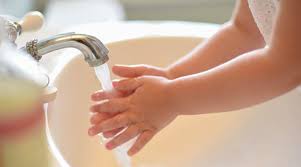Importance and Benefits of Good Hygiene
Hygiene simply refers to behaviors that can improve cleanliness and lead to good health, such as frequent hand washing, face washing, and bathing with soap and water.
In many areas of the world, practicing personal hygiene etiquette is difficult due to lack of clean water and soap. Many diseases can be spread if the hands, face, or body are not washed appropriately at key times.
Good Hygiene May Also Be Known as Personal hygiene, Healthy hygiene or Personal care.
4 Reasons You Would Need Good Hygiene
1) Disease Prevention
Good hygiene lowers your risk for diseases and illnesses commonly spread through viruses and bacteria. Your hands come into contact with bacteria every time you cough, use the restroom, touch your pet, or touch surfaces, such as stair railings, used frequently by others.
Failing to wash your hands and body regularly can cause this bacteria to multiply, increasing the risk for infection and other health problems. Washing yourself and staying clean can kill and remove illness-causing bacteria from your body, lowering the risk for disease.
Good hygiene is key to preventing infection when wounds and skin irritation are present. Poor hygiene can result in dirt and other bacteria entering and staying inside skin wounds, while good hygiene can ward off this bacteria to prevent infection. Good hygiene prevents you from spreading bacteria and disease to others, including coworkers and family members.
2) Social and Professional Acceptance
Spending time around those who fail to demonstrate good hygiene can be unpleasant due to factors such as bad breath and body odor, and it increases your own risk for disease and infection. Poor hygiene can have negative consequences on your social life and relationships — including business relationships.
Many employers urge or require employees to practice good hygiene and tend to hire people who look clean and as though they practice healthy hygiene habits. Good hygiene is especially important to employers in the food and medical industries, as poor hygiene can lead to contamination and the spread of disease.
Children who practice good hygiene can avoid being bullied at school, as evidence suggests that poor hygiene is one of the top reasons kids are bullied. Parents who teach their children the importance of good hygiene instill healthy habits early on in life and prevent them from experiencing problems with bullies.
3) Higher Confidence and Self-Esteem
Being clean and well-groomed can help you feel more confident and comfortable both physically and mentally. Feeling dirty, oily, and unfresh not only puts your physical health at risk, but it can trigger negative emotions of discomfort, irritability, and anxiety. Poor hygiene can affect your mood, your interactions with others, and the way you feel about yourself.
Good hygiene can boost your confidence and self-esteem and make you seem more positive and attractive to others.[5] Good hygiene can indirectly boost your success at work, in the gym, and in scenarios that require you to be at your very best.
Read Also: Importance of Sleep Hygiene
4) Pain Prevention
Practicing good hygiene can prevent you from developing painful diseases and infections. Suffering from chronic pain can reduce your overall quality of life and even lead to comorbid disorders, such as obesity and painkiller addiction. Good hygiene can help you stay in good overall health so you can avoid experiencing pain caused by certain medical conditions.
Failing to brush and floss teeth regularly increases the risk for gum disease, which causes chronic pain and tooth loss in its advanced stages. Staying in wet, sweaty socks for hours after exercising increases the risk for athlete’s foot, which can lead to a fungal nail infection that causes pain and inflammation under the nails.
Good hygiene helps prevent the development of medical conditions such as these and can keep you feeling healthy and pain-free.
Understanding Good Hygiene
Good hygiene is crucial to good overall health and wellness because it helps lower the risk for disease, illness, and medical conditions caused by the effects of poor hygiene.
When a person doesn’t practice good hygiene, their body can accumulate bacteria that contribute to diseases such as athlete’s foot, head lice, and scabies.
Poor hygiene can also cause parasites to grow and multiply on the skin and in the body, causing parasitic diseases like malaria and toxoplasmosis.
Good personal hygiene habits include brushing your teeth, bathing or showering, and wearing clean clothes. Performing these habits daily or as often as needed achieves and maintains good hygiene and cleanliness.
Risks of Good Hygiene
There are no risks to practicing good hygiene. Poor hygiene, on the other hand, increases the risk for bacterial, viral, and parasitic infections. Serious medical conditions that can develop on behalf of poor hygiene include gastroenteritis, food poisoning, hepatitis A, influenza, common cold, giardiasis, roundworm, and threadworm. Good hygiene can help you avoid the possible risks associated with poor hygiene.
The human body can provide places for disease-causing germs and parasites to grow and multiply. These places include the skin and in and around the openings to the body. It is less likely that germs and parasites will get inside the body if people have good personal hygiene habits.
What to Expect With Good Hygiene
Practicing good hygiene requires you to perform a series of basic personal hygiene habits on a regular basis. Wash your body and hair often to remove bacteria and dead skin cells.
Brush your teeth after every meal, or at least twice per day. Flossing and brushing regularly help prevent the accumulation of bacteria in the mouth that increases the risk for gum disease.
Wash your hands every time before eating or preparing food and after coming into contact with bacteria and viruses in restrooms and after coughing or sneezing and taking out the garbage. Trim your fingernails and toenails regularly, and take steps to ensure your feet are clean and dry at all times.
Good hygiene can help you stay healthy and offers countless positive benefits for your physical, emotional, and psychological health.
Read Also: Personal Hygiene: Benefits, Creating a Routine, In Kids, and More
Here are more personal hygiene guides for you:





